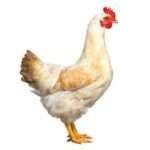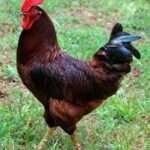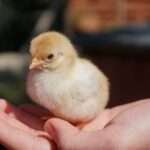
When it comes to raising chickens, selecting the right breed for your flock is a crucial decision. One popular choice among poultry enthusiasts is the Wyandotte chicken breed. With its charming appearance, dual-purpose capabilities, and friendly temperament, Wyandottes have become a favorite for both beginners and experienced backyard chicken farmers. In this comprehensive guide, we will delve into the heritage, characteristics, and specific care requirements of Wyandotte chickens, helping you determine if they are the perfect addition to your flock.
The Heritage of Wyandotte Chickens
The Wyandotte chicken breed has a fascinating heritage, deeply rooted in the history of American poultry farming. Developed in the late 19th century, the breed emerged from a series of crossbreeding experiments. Breeders aimed to create a chicken that excelled in both egg production and meat qualities while maintaining an appealing appearance.
The name “Wyandotte” pays tribute to the Wyandot people, a Native American tribe with a rich history in North America. Just like the tribe, Wyandotte chickens are versatile and adaptive to various environments. The breed’s creation was the result of combining diverse chicken varieties, including the Dark Brahma, Silver Spangled Hamburg, and Polish chickens.
As a tribute to the Wyandotte’s diverse heritage, the American Poultry Association officially recognized the breed in 1883. Since then, Wyandottes have gained popularity among chicken enthusiasts for their unique attributes and charming personalities.
Characteristics of Wyandotte Chickens
Wyandotte chickens are renowned for their striking appearance and distinctive feather patterns. They are medium-sized birds with rounded bodies and a graceful carriage. The most recognized and beloved color variety is the Silver Laced Wyandotte, boasting a stunning black and white laced feather pattern that resembles delicate lacework. Other popular varieties include Golden Laced, Blue Laced Red, and Black Wyandottes, each possessing its own eye-catching colors.
Beyond their captivating looks, Wyandottes are known for their docile and friendly temperaments. They are calm and gentle birds, making them an excellent choice for families with children and beginners in chicken keeping. Wyandottes are generally easy to handle and are less likely to display aggressive behaviors, making them a pleasure to interact with on a daily basis.
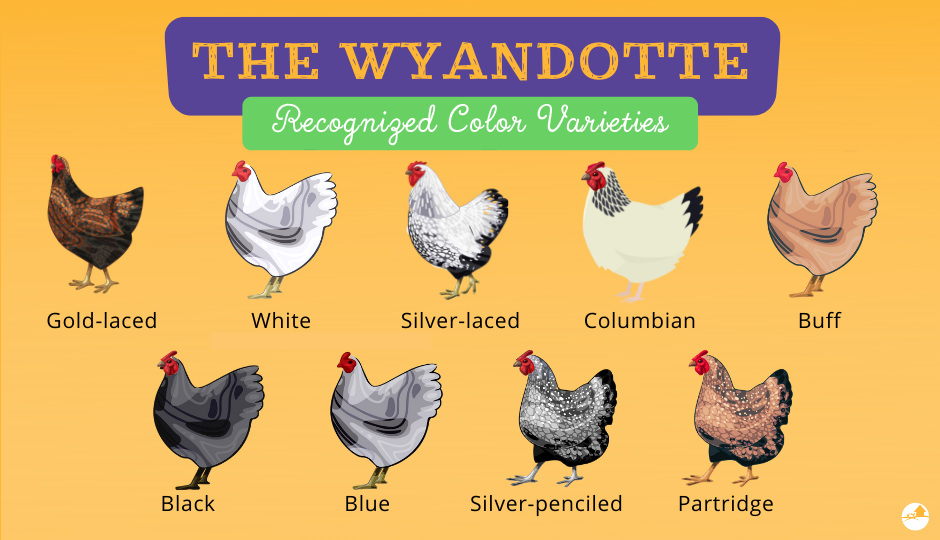
Egg-Laying Capacity and Meat Qualities
One of the significant advantages of raising Wyandotte chickens is their impressive egg-laying capacity. While individual production can vary depending on factors like diet and environment, Wyandottes are generally reliable layers. On average, a healthy Wyandotte hen can produce around 200 to 240 large, brown eggs annually. This makes them a valuable addition to any flock, especially for those looking to have a steady supply of fresh eggs for their family.
Not only are Wyandottes excellent layers, but they also possess remarkable meat qualities. As a dual-purpose breed, they are well-suited for meat production. The Wyandotte’s plump and well-rounded body makes them an ideal choice for those interested in raising chickens for both egg and meat purposes. Their flavorful and tender meat has made them a favorite among backyard farmers who appreciate the value of homegrown, organic poultry.
Suitability for Beginners
For beginners venturing into chicken keeping, Wyandotte chickens are an excellent choice. Their friendly disposition makes them easy to handle and a pleasure to care for. They are naturally curious birds that enjoy exploring their surroundings, making them a joy to watch and interact with.
Additionally, Wyandottes adapt well to different environments, making them a versatile breed for both rural and urban settings. Their calm demeanor and ease of handling make them suitable for families with children, ensuring a positive and enjoyable experience for everyone involved.
Compatibility with Other Flock Members
When considering adding Wyandotte chickens to your existing flock, you’ll be pleased to know that they generally get along well with other breeds. They seem to get along well with breeds such as Australorps, Rhode Island Reds and Orpingtons just to name a few. Their friendly nature and non-aggressive behavior make them great flock mates, and they tend to establish harmony within the coop. However, like introducing any new members to a flock, it’s essential to monitor their integration and provide ample space to avoid territorial disputes.
Specific Care Requirements for Wyandotte Chickens
To keep Wyandotte chickens happy and healthy, specific care requirements should be met. When it comes to housing, Wyandottes are adaptable to various climates, but a well-ventilated and predator-proof coop is essential. Provide each bird with ample space to prevent overcrowding, as it can lead to stress and behavioral problems.
Like all chickens, Wyandottes require a balanced diet to maintain optimal health and productivity. A well-rounded commercial chicken feed, suitable for layers, should serve as the foundation of their diet. Additionally, supplement their feed with kitchen scraps, grains, and occasional treats like fruits and vegetables. Fresh water should always be available, and it’s crucial to keep the water containers clean to avoid contamination.
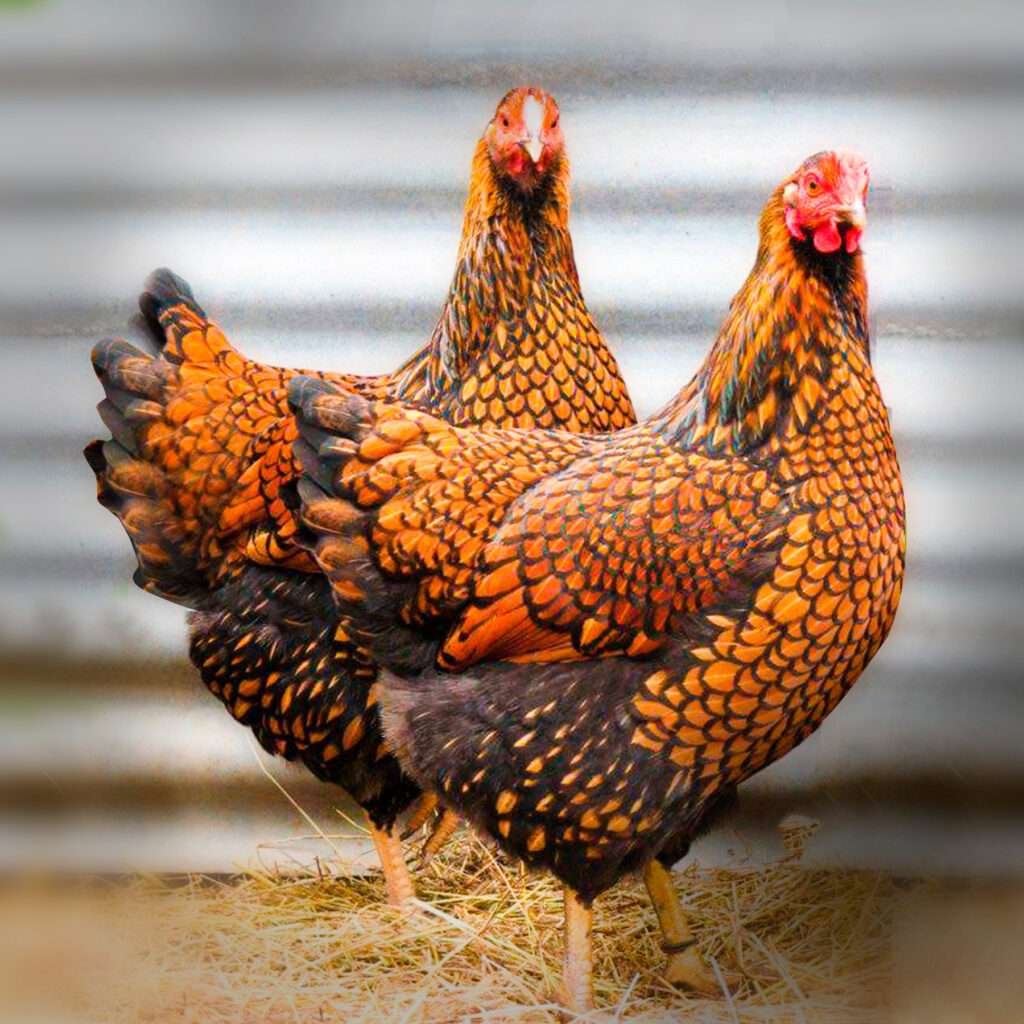
Health Considerations
As with any livestock, maintaining the health of your Wyandotte chickens is of utmost importance. Regular health checks and preventive measures can go a long way in ensuring a thriving and disease-free flock.
Common Health Issues: Wyandottes, like other chicken breeds, can be susceptible to various health issues. Some common problems include mites and lice infestations, respiratory infections, and egg-laying problems. Regularly inspecting your chickens and keeping the coop clean can help prevent these issues. If you notice any signs of illness, seek advice from a veterinarian experienced in poultry care.
Biosecurity: Implementing strict biosecurity measures is crucial to protect your flock from infectious diseases. Limiting contact with other birds, quarantining new additions, and regularly disinfecting equipment and coops are essential practices. Educate yourself on biosecurity protocols to keep your Wyandottes healthy and disease-free.
Tips for Breeding and Incubating
If you decide to breed your Wyandottes, you’ll find them to be good brooders and attentive mothers. Wyandotte hens tend to go broody and enjoy sitting on a clutch of eggs to hatch their chicks. However, if you plan to incubate eggs yourself, ensure proper temperature and humidity control during the incubation process for successful hatching.
Integrating Wyandottes into Your Flock
Introducing new Wyandottes to an existing flock requires careful consideration. To minimize stress and potential conflicts, start by keeping the new birds in a separate but adjacent area to allow the chickens to become familiar with each other’s presence. Gradually integrate them under supervision and provide ample hiding places and multiple feeding stations to reduce competition.
Wyandottes as Exhibition Birds
Beyond being a valuable addition to backyard flocks, Wyandottes are also popular exhibition birds. Their stunning appearance, unique color patterns, and distinct rose comb make them stand out in poultry shows. If you’re interested in exhibiting your Wyandottes, ensure proper grooming and familiarize yourself with the breed standards set by poultry associations.
Wyandotte Chickens as a Breed
The Wyandotte chicken breed is an excellent choice for beginner and intermediate backyard chicken keepers alike. With their charming personality, exceptional egg-laying capacity, and dual-purpose qualities, Wyandottes offer both utility and beauty to any flock. Their low maintenance requirements, adaptability, and friendly demeanor make them a joy to care for, especially for families with children.
Whether you’re looking to raise chickens for fresh eggs, meat, exhibition, or simply the pleasure of having feathered friends in your backyard, Wyandottes are sure to leave a lasting impression. With proper care, attention, and a little bit of love, your Wyandotte chickens will reward you with years of companionship, delicious eggs, and the satisfaction of successfully raising a wonderful and enduring breed.


